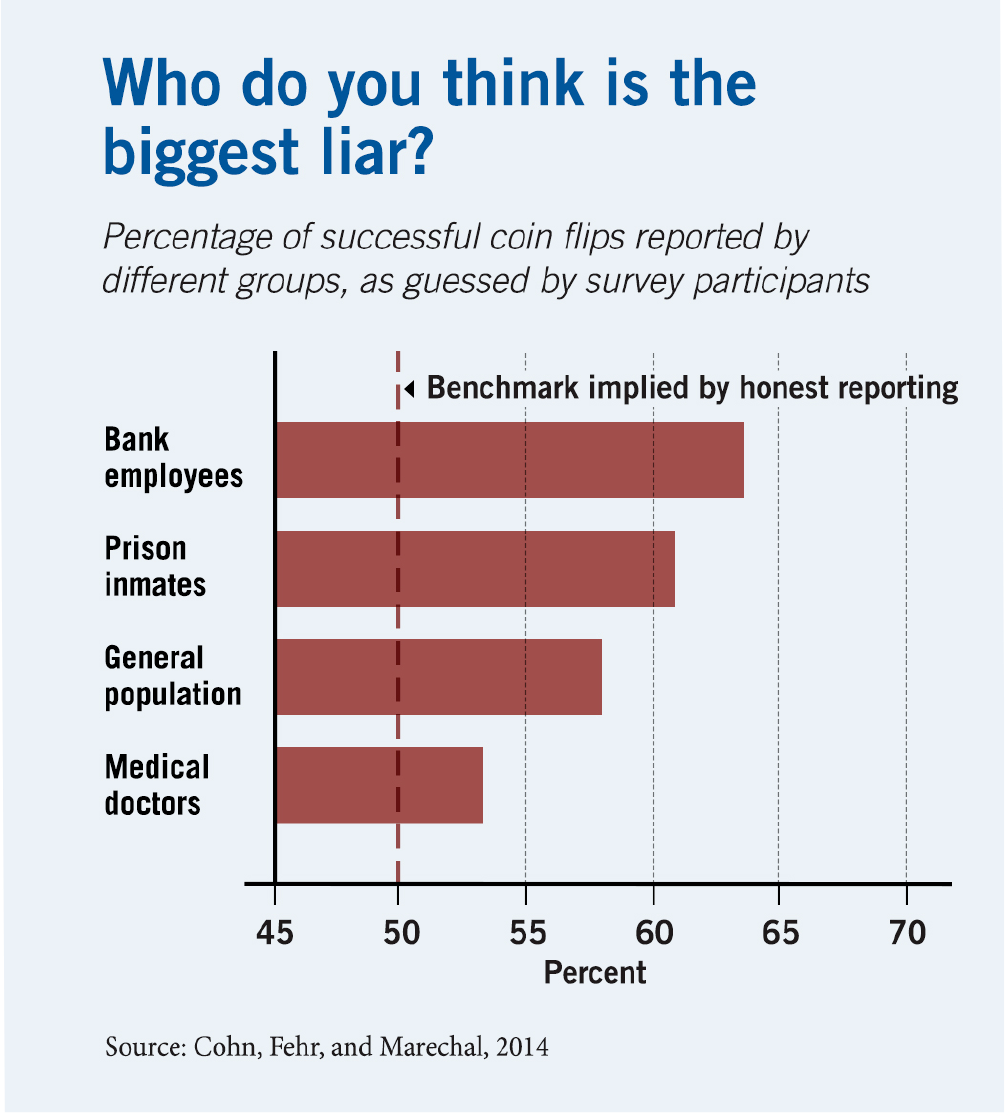
Someone Looks Trustworthy? You May Be Wrong.
But smiling may make others trust you more.
Someone Looks Trustworthy? You May Be Wrong.Why bankers seem more dishonest than prison inmates
Bank employees are not inherently untruthful, but they work in a setting that could encourage cheating.

Being reminded about work may have made bankers more materialistic.
Alain Cohn, Ernst Fehr, and Michel André Maréchal, “Business Culture and Dishonesty in the Banking Industry,” Nature, November 2014. Chart reprinted with permission from Nature Publishing Group. Copyright 2014.

But smiling may make others trust you more.
Someone Looks Trustworthy? You May Be Wrong.
What are the mental connections we’re making between various expenses, and how can understanding them help us make better decisions?
Are You Shopping Irrationally?
We put greater value on things other people want but can’t have—just because they can’t have them.
What Drives Our Desire for ExclusivityYour Privacy
We want to demonstrate our commitment to your privacy. Please review Chicago Booth's privacy notice, which provides information explaining how and why we collect particular information when you visit our website.